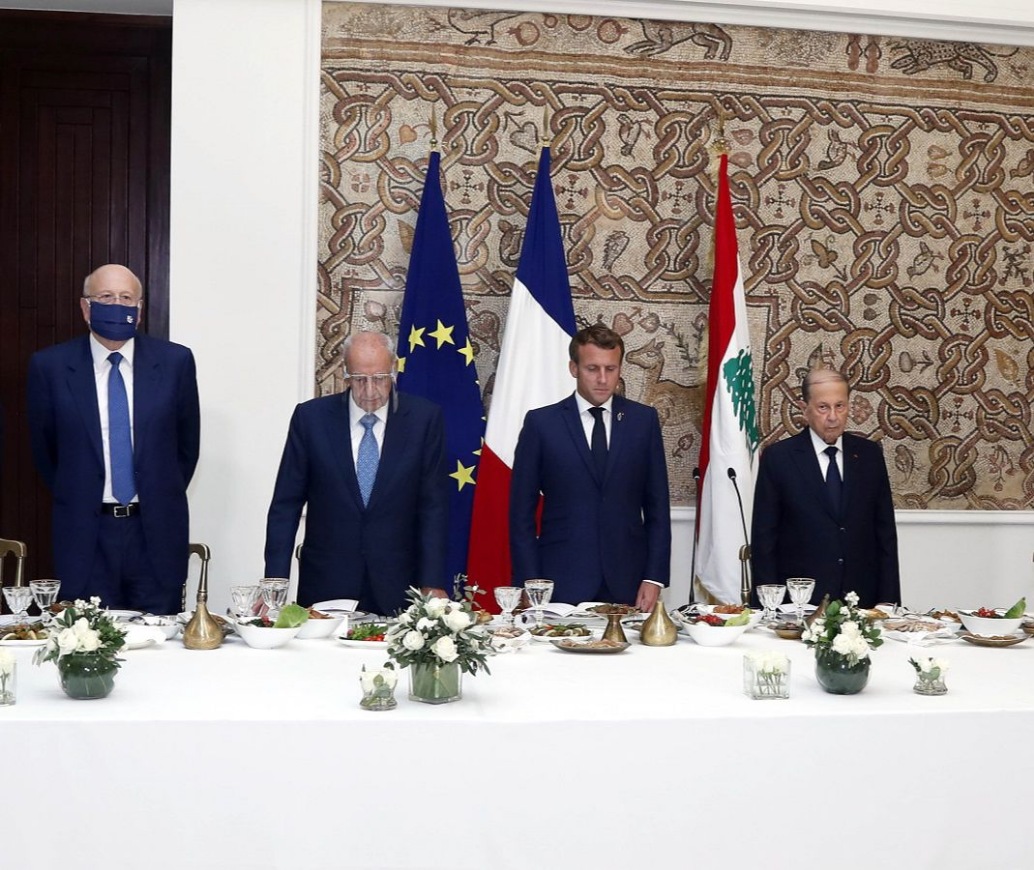Por Ali Hammoud
El vacío presidencial y gubernamental en el Líbano continúa ante la pérdida de protagonismo de las fuerzas locales en las elecciones presidenciales, en favor de fuerzas regionales e internacionales que siempre han tenido un gran impacto en la política interna libanesa.
Desde la independencia del país en 1943, esas fuerzas han jugado papeles decisivos en la elección del presidente, quien representa la convergencia de intereses y dinámicas de esas potencias geopolíticas regionales. Después de su independencia, Gran Bretaña y Francia compartieron influencia en el Líbano. Pero pronto perdieron su exclusividad, cuando los actores regionales e internacionales entraron en escena.
Hoy Francia vuelve a su ominoso papel salvador del régimen a través de sus reiteradas iniciativas, tal como intervino tras la explosión del 4 de agosto de 2020 y reunió a las partes del conflicto político en la mesa del presidente Macron y enfrió la ira de los libaneses. Hoy está aquí organizando una reunión de cinco países -Estados Unidos, Arabia Saudita, Qatar, Egipto y Francia- para presentar una iniciativa para una salida electoral, intervención que rechazamos.
Entre los partidos políticos del sistema gobernante libanés y cercanos al régimen sirio está el ex ministro Suleiman Franjieh, candidato de lo que en el Líbano se llama dúo sectario o dúo chiíta, es decir Hezbolá y el Movimiento Amal. Trabaja para comercializar con los países de la región y obtener la aprobación saudí a cambio de garantías para proteger los intereses políticos de los Estados del Golfo en el Líbano, en especial tras la reconciliación saudí-iraní y el fin del distanciamiento entre ambos países.
• Este impasse político entre los partidos del régimen y sus partidarios va acompañado de una escalada y agravamiento del colapso económico. El tipo de cambio del dólar llega al umbral de las 100 mil libras cuando hace tres años era de 1.500 libras. También hay un desplome aplastante de los salarios, junto a un colapso en el valor de los ahorros y pequeños activos familiares.
• Los efectos de esta crisis impactan en las condiciones de vida de la clase trabajadora y los desocupados. Además no se cubren necesidades vitales, como la seguridad alimentaria y sanitaria, la educación y los servicios básicos como electricidad, agua y transporte. Todo ello aumenta la pobreza de las familias libanesas.
• El costo de los alimentos en el presupuesto familiar aumentó un 7.883%: lo que antes comprabas por mil libras ahora cuesta 78 mil. El costo del transporte, que drena una parte importante del presupuesto de consumo por la falta de transporte público compartido, creció un 5.615%: lo que antes costaba dos mil libras ahora cuesta 112 mil. El costo de la ropa y los zapatos subió un 7.350%, la salud un 1.761%, los servicios de vivienda un 1.977% y la educación un 451%.
• Todos estos enormes aumentos de precios contrastan con un pequeño aumento de los salarios, que no supera el 385%. Sin embargo, el valor actual de los salarios ha disminuido en un porcentaje mayor, ya que la economía libanesa está muy dolarizada. El monto salarial en dólares disminuyó de 450 a 28 por mes.
La pugna política entre los partidos del régimen está ligada a las posturas autoritarias y se disputan la hegemonía y el saqueo de los dineros públicos. La división política que se vive hoy no se refiere a proyectos de reformas diferentes o de si el costo del colapso lo pagará tal o cual sector. Los proyectos económicos de ambas partes de la disputa política no difieren entre sí, porque los ha elaborado el mismo autor: la Asociación de Bancos.
Hoy la sociedad libanesa se está fragmentando y lo que queda del Estado está perdiendo su capacidad para mantener su autoridad central. Han comenzado señales para establecer grupos de “autodefensa” en las regiones. Esto ya no se limita a Hezbolá y sus áreas de control, sino que ha comenzado a extenderse a nuevas zonas como Achrafieh, donde actúan grupos de los Soldados de Dios, y Zouk Mikael, donde actúan grupos de la Guardia de la Noche, ambos cristianos. Cada semana escuchamos noticias sobre nuevos grupos regionales y límites establecidos por municipios o partidos religiosos sectarios.
A esta situación se suman las oleadas de instigación contra los refugiados sirios y llamados a su deportación forzosa, lo que supone entregar a decenas de miles de opositores al régimen sirio y su condena a muerte. Líbano vive actualmente una etapa muy difícil de su historia, ya que ha acumulado problemas políticos, de seguridad, económicos y sociales. Bajo el sistema capitalista existente no se vislumbran soluciones en el horizonte. La solución a la crisis y el colapso sólo pasa por superarlo y abrir camino hacia un nuevo sistema: el socialismo.




